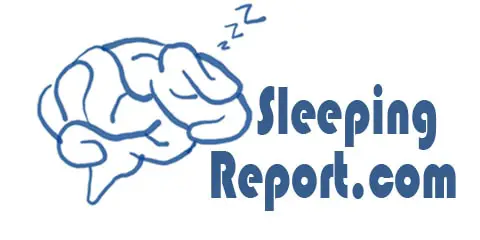It is safe to assume that every one of us has had trouble sleeping at some point or another. Maybe it was just one bad night due to a nagging cold, or it could be a chronic condition that might require a doctor’s help to treat.
In this article, we will consider 7 of the most common sleep problems and how we can overcome them by using natural self-help methods. A discussion will also take place about what symptoms to look for in chronic cases so you will have the details to share with your doctor if you decide to seek treatment.
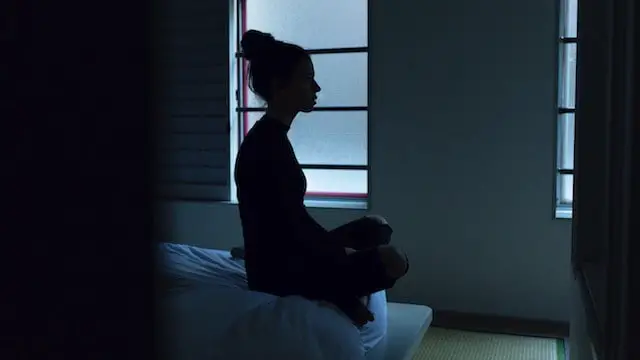
Problem 1: Teeth Grinding
Teeth grinding, clinically called bruxism, is an affliction that mostly occurs at night. That isn’t to say that it never happens in the daytime, but bruxism is a more common nighttime ailment.
Not only is bruxism common, but it usually goes unnoticed by most people. However, it can have negative consequences on your sleep patterns as well as on your mouth and jaw in general.
Symptoms of teeth grinding
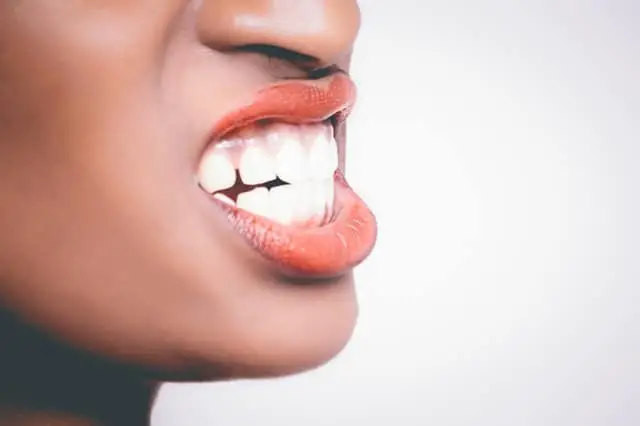
- Sore jaw muscles,
- Aching, sore, or increased sensitivity in the teeth or gums,
- Headache in the temple region
- Ear pain
- A clicking or locked jaw
Possible causes of sleep bruxism
Experts in mouth anatomy suggest that teeth grinding could be caused by several mouth abnormalities, such as the teeth not being aligned correctly or teeth that are missing. However, sleep specialists say the most common cause of sleep bruxism is high levels of stress.
Natural Remedies
Some remedies that you can try at home are jaw massages and hot washcloth compresses right before bed. Both have shown to effective according to dentists. In addition to these solutions, is to relax. Calm your mind and your body when you are ready to go to bed. There will be more on relaxation techniques in a section below.
Professional Remedies
Dentists can have mouth guards molded to your teeth to keep them from being ruined as you sleep. The guard will not cure bruxism, but it can help save your teeth from damage. You can find these mouth guards in general retail stores, but these kinds are not molded to fit your mouth, so they may be more uncomfortable.
Braces or other orthodontia may be able to help with abnormalities in your mouth that may be causing your teeth-gnashing problems.
When is it time to call a professional?
If you are experiencing pain that doesn’t go away with the natural remedies and relaxation techniques we talk about here, it may be time to call in the professionals. This is especially true if you have chipped or broken your teeth, or have headaches that will not go away.
If your problem is stress-related, it may be time to talk to a therapist about some of your stress-inducing issues so that you are better able to relax.
Problem 2: Sleepwalking

Sleepwalking, or somnambulism is one of those nighttime disturbances that happens mostly in children. It can occur in adults, but it usually coexists with another affliction, such as being drunk or having taken a sedative before going to bed.
Sleepwalking tends to occur in the deepest part of the sleep cycle and generally just an hour or two after going to bed.
Symptoms of Sleepwalking
- Glassy eyed stare
- Walking
- Non-responsive or slow to respond
- Difficult to wake
- Generally, does not remember the episode later.
Possible Causes of Sleepwalking
The most common cause of sleepwalking is sleep deprivation. This is true in both children and adults. Other causes might include fever, sleep apnea, use of alcohol or sedatives, jet lag, or stress.
Natural Remedies
One of the most common techniques you can try at home is preparing a sleep routine that includes relaxation techniques. While there is no true treatment for sleepwalking, relaxation is the most suggested remedy for all sleep problems.
Since there is no real treatment, you should prepare your home to accommodate the sleepwalker. It is much like baby-proofing a house. You want to be sure there are no obstacles that the sleepwalkers may hurt themselves with. Hide the car keys if the afflicted is an adult. Be sure to lock all windows and doors. If the bedrooms are upstairs, a gate will help keep the walkers from falling down the stairs. Though it may seem obvious, do not ever let a sleepwalker sleep on a bunk bed.
Professional Remedies
Again, there is no real remedy for sleepwalking, but hypnosis has been known to be helpful in adults who sleepwalk.
When is it time to call a professional?
It is important to call in a sleep professional if the sleepwalking episodes occur more than a couple of times a week or if there is an injury due to the episode.
Problem 3: Circadian Rhythm Disorders
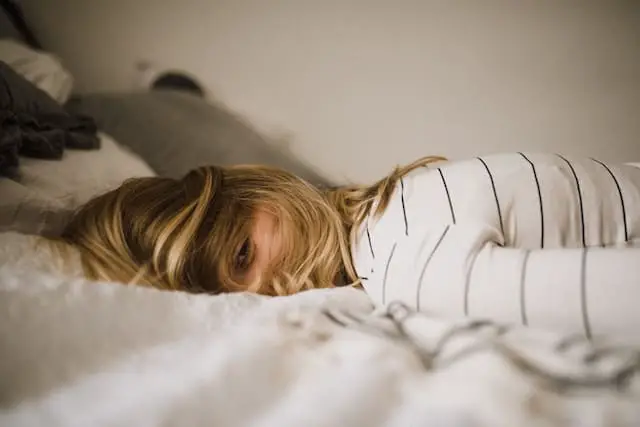
Circadian Rhythm Disorders is a broad term used to describe any sleep problem that has to do with our natural body rhythms. A person’s Circadian Rhythm is sort of like a clock in that it depends on natural light and darkness to keep our bodies in sync with our environment.
Some of the disorders in this group are:
- Delayed Sleep Phase Syndrome
- A Delayed Sleep Phase Syndrome diagnosis is common in teenagers and young adults and can be present in people into their mid-twenties. This syndrome is one where melatonin production happens later at night than normal, thus, causing the sufferer to need to sleep later into the day to receive all the sleep they need.
- What becomes the problem is that these individuals still need their full 7-9 hours of sleep every night and with the social factors of school and work, this is impossible, so they become sleep deprived.
- Advanced Sleep Phase Syndrome
- Advanced Sleep Phase Syndrome is the opposite of Delayed Sleep Phase Syndrome. This disorder presents itself in older people. They have trouble staying awake and are ready to sleep much earlier than nature’s biological clock would predict. Not only can these folks not stay awake late, but they also rise earlier, sometimes as early as 3:00 – 4:00 am.
- Even though sufferers of this syndrome get their full 7-9 hours of sleep, most do not want to get up at 3:00 am and start their day, nor do they want to fall asleep at 7:00 – 8:00 pm.
- Shift Work
- Those who work at times outside of the 9:00 am – 5:00 pm norm become apt to have sleep imbalances than those who do. This is an extrinsic problem in that it is caused by outside influence rather than an inner imbalance.
- Shift workers that work a set schedule can become accustomed to their wake and sleep routine, but those who work on a changing shift schedule where they work a different shift every day have a hard time getting into a good sleep schedule.
- Jet Lag
- Jet lag is another extrinsic problem in that it happens due to outside influence, namely, the crossing of multiple time zones in a rapid amount of time.
- This generally occurs when you travel more than 2 time zones away from your start point. It is also more common when you travel east and lasts a couple of days to a couple of weeks depending on how long the journey was and how long you were in the destination before moving on to the next. Frequent flyers, such as pilots and flight attendants, have more trouble with jet lag than the average flyer.
Symptoms of Circadian Rhythm Disorders
- Excessive daytime sleepiness
- Exhaustion
- Inability to concentrate
- Delayed motor skill capabilities
- Digestive disorders such as constipation and/or diarrhea
Possible Causes of Circadian Rhythm Disorders
See above descriptions for possible causes.
Natural Remedies
Practice good sleep hygiene using the tips provided below.
Professional Remedies
Lightbox therapy is a popular choice for resetting your biological clock. Timing the perfect time of day to use the box is key. A specialist in sleep disorders can help you with the timing. Another popular method is Chronotherapy, which is a behavioral treatment where you move chronologically move your sleep time to fit with your desired sleep schedule. Once you reach this desired sleep time, set yourself up for a strict bedtime schedule for this time.
When is it time to call a professional?
You will want to call the doctor if your condition lasts longer than a month or two. The condition has then become chronic and needs intervention. You will also want to contact your doctor or a sleep professional if you also develop snoring or gasping for breath in your sleep as this could be a sign of sleep apnea.
Problem 4: Night Terrors and Nightmares

Night terrors and nightmares both are more prevalent in children than they are in adults. Though many adults suffer from frequent nightmares, there is usually an underlying cause.
Sleep terrors generally happen within 90 minutes of falling asleep and can last anywhere from a few seconds to up to 30 minutes. Nightmares, on the other hand, tend to happen during REM sleep and this type of sleep lengthens as the night goes on, thus, you have nightmares more often in the early morning just before it is time to wake up.
Symptoms of Night Terrors and Nightmares
- Night Terrors
- Thrashing or sitting up while asleep
- Not being able to wake up
- Screaming
- Sweating
- Rapid heartbeat
- Dilated pupils
- Increased blood pressure
- Breathing quickly
- No recollection of the event
- Bedwetting
- Nightmares
- Waking up frequently
- Full or partial recollection of the nightmare
- Fully aware of their surroundings
- Shaking
- Fear
- Increased blood pressure
- Rapid heartbeat
Possible Causes of Night Terrors and Nightmares
Night Terrors
The cause of night terrors is an overload to the central nervous system which usually happens from being too tired or overstressed. Yet, they can also be caused by being sick that includes a fever, and some medications, especially if they are new, can cause night terrors as well. One last known cause of night terrors is too much coffee, tea, chocolate, and/or soda. The common factor in these is caffeine. You want to stay away from that trigger.
Nightmares
Nightmares can be caused by anything from eating before bed to Post Traumatic Stress Disorder (PTSD). It is true, eating before bed pushes your metabolism into action which then makes your brain work overtime when it should be settling you down for sleep.
Other causes can be watching scary movies, stress, medications such as those for depression, high blood pressure, and nicotine patches. Nightmares are especially common with those that suffer from high levels of anxiety and PTSD. The reason for that is when you suffer from these disorders it causes the brain to release chemicals in a fashion that is not in sync with your natural body clock.
Research has shown that there is a correlation between nightmares and suicide, though it is not known why. Some believe that nightmares cause sleep deprivation which leads to a poorer quality of life.
Natural Remedies
Night Terrors
The most important remedy you can try is to make sure you do not let yourself or your child get overtired. At bedtime stick to a relaxing and simple routine that allows you to let go of the stress from the day. Another easy strategy you can try is to not stay up too late. Go to bed early and get plenty of rest.
Nightmares
Try to follow a good sleep routine as outlined below. Meditation or yoga are always good remedies to try if you don’t want to visit the doctor. Unfortunately, it is often going to be best to treat the underlying cause of the nightmares.
Professional Remedies
While there is no true remedy for night terrors or nightmares, it is often necessary to seek psychological counseling to help relieve the stress you are feeling. It is critical for persons who struggle with anxiety, depression, and PTSD to seek professional help just for peace of mind.
If the nightmares are medication-related, you can speak with your doctor about changing the medication.
When is it time to call a professional?
You must call for professional help if you feel the need to hurt yourself or others because of your nightmares. People want to help, and you are not alone.
You may also want to call a professional if the nightmares change, such as, become more frequent, or increase in intensity. There may be an underlying cause that needs a diagnosis from a doctor or a sleep professional.
Problem 5: Restless Legs Syndrome (RLS)
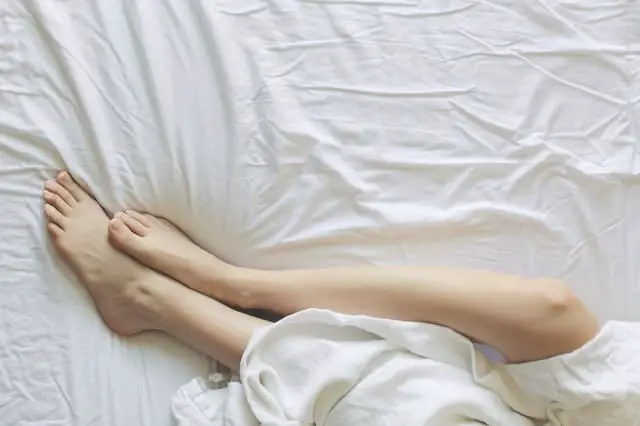
Restless legs syndrome is a neurological disorder that has been classified as a sleeping disorder as well as it tends to happen at night and disturbs healthy sleep patterns.
This disorder causes the incessant urge to move your legs due to strange sensations in your legs and sometime in your arms as well. It often gets worse at night or after you have been sitting for a while. This syndrome can occur at any age and to either gender, though it does tend to get worse as you get older and generally affects women more often than men.
There is no specific testing that can be done to determine an accurate diagnose of RLS. Doctors will make a decision based on symptoms, familial suffering, and whether or not there are any underlying conditions.
Symptoms of Restless Legs Syndrome
The most reported symptom of RLS is the need to constantly move your legs while at rest.
However, symptoms may include these feelings in the legs or arms:
Tingling
Itching
Shocking
Crawling bugs
Aching
Burning
Tugging
Possible Causes of Restless Legs Syndrome
Genetics is often a factor in restless legs syndrome. If someone in your family suffers, you have a higher chance of suffering too.
RLS is hard to diagnose at times because many chronic conditions have similar symptoms. Such as diabetes, iron deficiency, Parkinson’s Disease, epilepsy, kidney failure, and peripheral neuropathy. Medications can cause symptoms, so your doctor will usually treat the underlying conditions.
Natural Remedies
Some ideas you can try to help alleviate some of the symptoms of RLS are to take a warm bath before bed to help relax the muscles. Along these lines, are heating pads, warm compresses, or ice packs. It has been reported by some sufferers that alternating heat and ice is beneficial to relieving some of the symptoms.
As with any of these conditions in this article, good sleep hygiene is always a good idea. Get regular exercise, though for those with RLS, exercising in the morning may help with some of the sensations that occur with RLS.
Professional Remedies
There is no cure for RLS, so as stated earlier, treating the underlying conditions is the best way to go and you usually need medication to get those disorders under control.
Some medications that are prescribed are dopaminergic, anticonvulsants, antiseizure, benzodiazepines, and in severe cases opiates.
When is it time to call a professional?
You should consult your doctor if the symptoms become so severe that you are not getting any sleep due to the discomfort. Losing sleep like this can be detrimental to your quality of life and a doctor should be involved.
Problem 6: Snoring and/or Obstructive Sleep Apnea
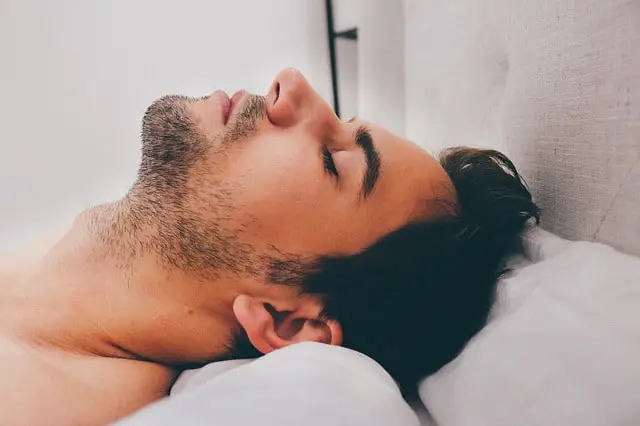
We all know someone who snores, so the assumption that we all know that snoring is the noise that happens when we sleep becomes valid. The reason snoring happens is that the tissues in the throat become too relaxed and then vibrate while we breathe.
Snoring is indeed annoying, even pushing couples into separate bedrooms if it becomes too persistent and keeps one or both of you awake. However, it is also true that snoring can be deadly, especially if it is related to Obstructive Sleep Apnea.
Obstructive sleep apnea occurs when the muscles in your sinuses and throat become too relaxed. When in this relaxed state the muscles and tissues can obstruct your airways, which causes you to stop and start breathing over and over in your sleep. This repeated action means that you may not be getting enough oxygen to your brain.
Symptoms of Snoring and/or Obstructive Sleep Apnea
- Loud noise from your air passages.
- Headache
- Daytime sleepiness
- Poor concentration
- Irritability
Possible Causes of Snoring and/or Obstructive Sleep Apnea
Snoring and obstructive sleep apnea can be caused by several reasons. One of which is being sick or suffering from allergies. When your nasal passages are clogged due to allergies, a cold, or a sinus infection, this can lead to snoring. Another reason is a deformity in your nasal passages. These include nasal polyps or a deviated septum.
Alcohol and sleep aids can also influence your snoring and obstructive sleep apnea. Both cause deep sleep which means you have less muscle control over your tongue and throat. This loss of muscle control can cause your tongue to fall back into the throat which obstructs your airways.
The most common reason for snoring is being overweight. Obesity causes you to gather too much tissue around your throat and shuts off the air pathways which causes your breathing to stutter all night.
Natural Remedies
The most important thing to do to alleviate symptoms of snoring and/or obstructive sleep apnea is to lose weight. Losing weight has many benefits, not just for sleep disorders, but for a better quality of life.
Stay away from alcohol, drugs, and nicotine. All tend to cause snoring and obstructive sleep apnea.
You can try special pillows and mouth guards to help alleviate snoring as well. Changing your sleep position or using a humidifier have also been known to help.
Professional Remedies
If you are diagnosed with obstructive sleep apnea, your doctor will likely prescribe a continuous positive airway pressure device, otherwise known as CPAP. This device is a mask that you wear while you sleep that pumps air into your air passages helping to keep them open while you sleep.
Studies have shown this device to be a highly effective remedy.
When is it time to call a professional?
You should call the doctor if your snoring is keeping you or your loved ones awake causing sleep distress. If you feel that you wake up gasping for air or someone has told you that you stop breathing when you sleep are important reasons to ask for a consultation with your doctor or sleep clinic.
Problem 7: Insomnia
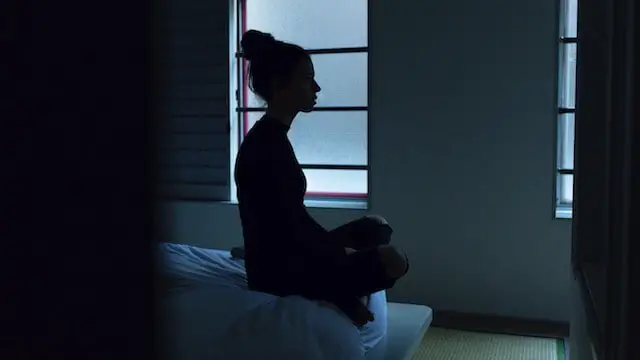
Insomnia is considered the most common of all the sleep disorders with 30-40% of the population suffering. This disorder is best described as difficulty falling asleep, staying asleep, waking up during the night and not being able to go back to sleep or waking too early in the morning.
Symptoms of Insomnia
- Daytime sleepiness
- Headache
- Irritability
- Fatigue
- Exhaustion
Possible Causes of Insomnia
There are two kinds of insomnia: acute and chronic. Acute insomnia is temporary and may last a day or a week or two. The condition is considered chronic if it occurs three or more days a week for three months or longer.
Acute insomnia is usually caused by changes in work schedule, jet lag, or emotional stress. Whereas, chronic insomnia can be caused by many medical conditions such as bipolar disorder, depression, anxiety, and immense pain.
Natural Remedies
Acute insomnia can usually be righted without much difficulty by following a good sleep routine and the passing of a bit of time.
Chronic insomnia can also be helped with the tips listed below.
Professional Remedies
The need for a professional to determine the underlying cause of chronic insomnia is necessary. This could lead to medication therapy or seeing a therapist for talk therapy.
When is it time to call a professional?
If you are suffering from chronic insomnia, you need to call a professional. Sleep is important to all body functions and when you cannot get enough over extended periods, other disorders may show themselves.
Natural Self-Help Methods That Can Help with Most Sleep Problems
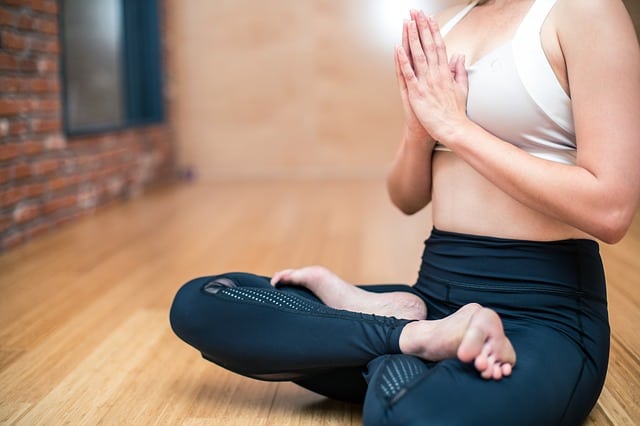
Relax
The most important thing you can do to help you sleep is to relax. It will probably take a little time to get into a routine, but if you practice relaxation techniques, it will help you sleep better.
Tips to get you started on your relaxation journey.
- Take a leisurely walk around the neighborhood.
- Listen to some soft music.
- Read a book
- Take a warm bath or shower.
- Listen to white noise such as ocean sounds or a thunderstorm
- Meditate
- Lay down on your bed.
- Close your eyes.
- Clear your mind of everything.
- Take deep breaths, in and out, in and out.
- Count backward from 100.
Turn off screens
Another important natural remedy to sleep problems is to turn off all screens at least 1-2 hours before you are ready to go to sleep.
Emissions of blue light from your electronic devices hinder sleep. These emissions cause too much light to enter your eyes when it is time to be winding down for the night. This means that melatonin production begins later and as a result, you will fall asleep later.
When talking about screens, it is any screen. Whether it be your computer, e-Reader, handheld game consoles, your phone, and yes, even the television. For a good night’s sleep, it is best to turn these off.
Limit caffeine
As research has proven to us time and again, caffeine is not our friend. It can perpetuate an intense cycle of bad sleep patterns.
We all know the magic cup of joe first thing in the morning gives us the kick in the pants that we need to get going in the morning. However, if you feel you need the caffeine because you did not sleep well the night before, you are entering a vicious cycle. You need the sleep, but the caffeine works to keep you from sleeping, and the cycle goes on and on.
This article is owned by Sleeping Report and was first published on August 19, 2019
What this means is that you should limit the amount of caffeine you take in daily. If you can go through your day with just that one cup in the morning, chances are it won’t mess with your sleep patterns too much. Along these lines, if you need more than the one cup, stop around noon.
Don’t forget, caffeine comes in more than just your cup of coffee. There is caffeine in soda, tea, and even that yummy chocolate you crave around 2:00 pm. Be conscious of what you are taking in, so you don’t overdo and mess up that sleep cycle.
Keep work out of the bedroom
It is common practice to have your computer set up in the bedroom/office, especially if you have limited space available. Consequently, you may not be getting the best rest you can.
With that computer or any other device, you use to work, right there in the same room with you, your brain trains itself that the room is the place for working, not sleeping. You need to retrain your brain to think of your bedroom as a place of rest.
Not to mention, all those beeps and alarms going off all night keep you from getting the rest you need. Knowing that they are right there, it is too easy to pick up your phone or tablet and check the latest e-mail or text message. The best thing you can do is to try to get in the habit of leaving the electronics out of the bedroom, or at the very least, turn them to silent mode so that they aren’t waking you from sleep.
Exercise
Numerous studies have shown that exercise is one of the best ways to ensure a restful night’s sleep. It would be beneficial to set up a consistent exercise regimen.
There has long been a difference of opinion between experts about whether it is better to exercise in the morning or to exercise at night. The conflicting views are confusing, to say the least. However, it is the shared opinion of many that it doesn’t matter when you exercise. Just get your body moving consistently.
The best thing you can do to find out what kind of exercise, and when, is the best for your body is to experiment. Try working out in the morning for a week or two and see how it fits in with your day and if you are sleeping better at night. Then, try exercising in the evening and check the results. Which one is the better fit? Now you know and can fix your schedule to accommodate exercise, regardless of whether it is day or night.
Turn the thermostat down
Research shows that sleeping in a cool room of 60-70 degrees Fahrenheit will give you a better sleep experience.
The reason for this is that your brain doesn’t allow for the release of the full dose of melatonin until your body temperature cools and your blood pressure decreases in preparation for sleeping. If you sleep in a very warm room, the melatonin doesn’t release correctly, leaving you to lay awake longing for sleep.
This article is owned by Sleeping Report and was first published on August 19, 2019
If you need to cool your bedroom off, there are many products out on the market to help you. There are cooling pillows and mattresses that you can buy to help keep your body cool. The obvious solution is air conditioning or a fan, but, if none of these are available to you, you can set a bowl of ice in front of a window so that the breeze will blow in the cooler air.
Sleep is important to track and the easiest way to do that is with a sleep journal. This journal is beneficial for seeing patterns that allow you to try to fix your schedule to work within these patterns.
Keep a sleep journal
A journal for tracking sleep is a clever idea to keep so that you can show it to your doctor if you choose to seek treatment for one of the sleep problems listed here. Not only can he see the patterns, but he can use these patterns to supply specialized treatment just for you.
To keep a sleep journal, you should track the following aspects of your sleep:
- When and what you ate throughout the day
- The exercise you took part in during the day
- The amount of caffeine you consumed that day
- When you woke up that morning
- What time you fell asleep that night
- How many times and for how long you were up in the night
- How well you slept
- Your emotions during the day
- Medications you took and at what times
There are a lot of fun ways to keep a sleep diary. You can search online for templates and suggestions. Pinterest is a great search engine for this type of activity.
SleepingReport.com copyright article was updated on ..
Summary
To sum up, everything discussed here, the best piece of advice to leave you with is to seek medical attention if any of these ailments are causing long-lasting issues with your sleep. Follow a good sleep routine and try to take part in as many relaxing activities as you can. Your body will thank you.
